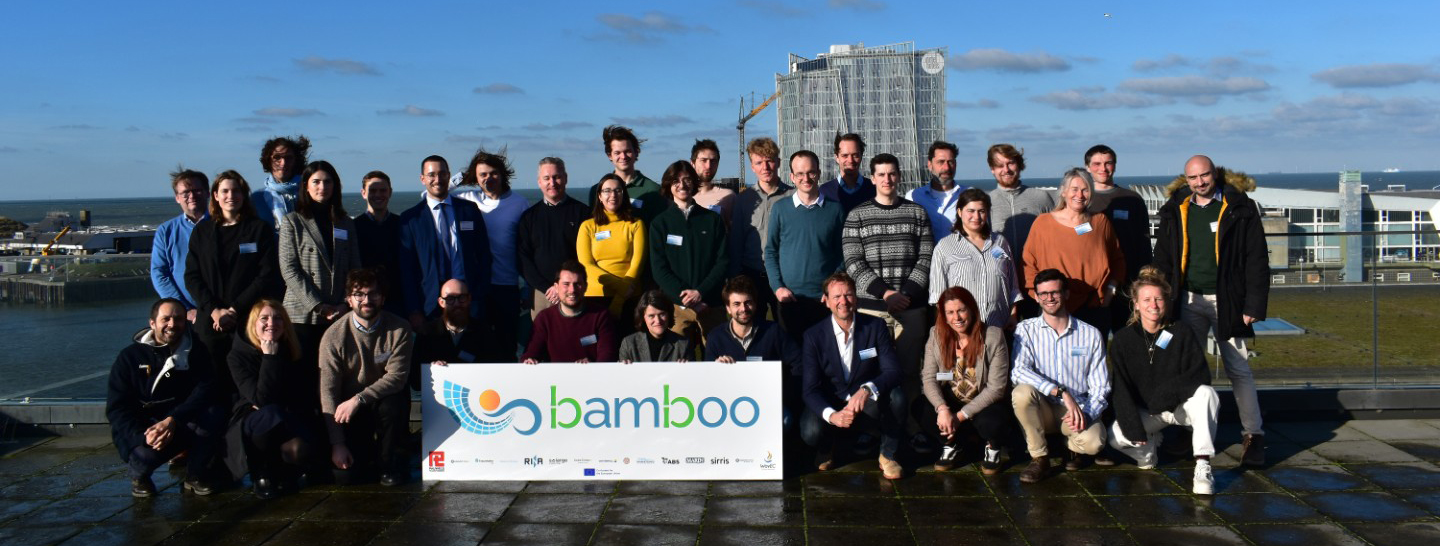The collaboration coordinated by Italian certification and engineering company RINA between offshore solar developer Oceans of Energy, four technology developers (Solarge, TKF, Pauwels Transformers, SolarCleano), five engineering and environmental consulting firms (RINA, ABS, Aquatera Ltd, Aquatera Atlantico, and WavEC), three test laboratories (MARIN, Fraunhofer CSP, SIRRIS), the European Marine Board maritime policy think tank, and offshore wind farm developer Vattenfall as a potential customer for implementation, aims to solve the remaining challenges for the introduction of large-scale offshore solar installations in new and existing wind farms. These include demonstrating the robustness and performance of the solar modules under offshore conditions and researching the environmental impact while ensuring sustainability throughout the value chain of this emerging industry.
The desired outcome is that the BAMBOO (Build scAlable Modular Bamboo-inspired Offshore sOlar systems) project will bring the technologies to maturity and enable funding to be secured before the end of the decade for the first offshore solar park of this type with a capacity of 100-200 MW in a Vattenfall offshore wind farm. The wind farm (development) where this will happen has not yet been decided.
Lower investment in the overall energy system predicted
The complementary nature of the energy patterns of an offshore solar farm and an offshore wind farm enables the farm to use the same grid connection more efficiently, reducing the need for investment in expanding the energy system. In addition, the space required for renewable energy generation both onshore and offshore can be drastically reduced by using the area of the offshore wind farm for solar installations as well. Furthermore, the larger size of offshore solar farms can reduce the environmental impact per installed solar module, as there is minimal need for anchors on the seabed and the power export cable is centralized on a larger floating island.
Support for the development of international standards
The project will contribute to the development of international standards and test procedures for offshore solar technology. To this end, hydrodynamic assessments will be carried out at MARIN, climate chamber tests at SIRRIS, tests for PV modules at Fraunhofer CSP, and accelerated life cycle tests based on offshore operation and measurements. Further research will be conducted to predict and improve energy performance over the entire service life. Another focus will be on measuring and predicting the environmental impact of the technology, including methods for improving environmental protection and end-of-life strategies. In addition, the activities aim at an internationally coordinated policy that also includes a framework for environmental assessment criteria.
 Fraunhofer Center for Silicon Photovoltaics CSP
Fraunhofer Center for Silicon Photovoltaics CSP
